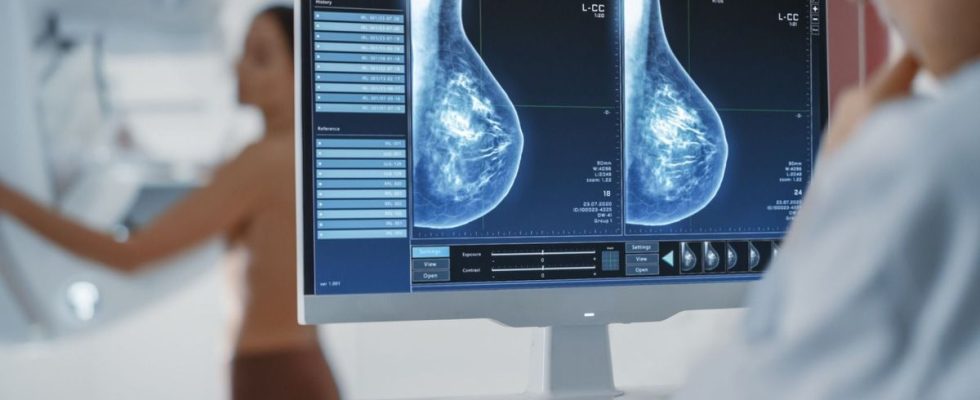Published on
Updated
Reading 2 mins.
Artificial intelligence applied to health never ceases to amaze us. Researchers have developed an algorithm capable of predicting the appearance of breast cancer five years before the detection or manifestation of the first symptoms. An important advance when we know that an early diagnosis increases the chances of recovery.
The study published in the journal Radiology on June 6, 2023 explains having developed this artificial intelligence tool thanks to the analysis of 18,000 mammograms carried out in 2016. Dr. Arasu, co-author of the study, said he wanted to understand how a technology that can decipher Hundreds of features in a mammogram could predict future breast cancer risk. You should know that artificial intelligence has already been used to help doctors diagnose breast cancer. But this is the first time that doctors have used it for disease predictions.
Better predictions than commonly used risk models
The mammograms used to develop this artificial intelligence showed no signs of cancer. To determine future risk, the algorithm associated certain features and patterns of breast tissue structure with cancer risk. The study reports that artificial intelligence detected 24-28% of breast cancers occurring in the following five years, estimating the risk of developing the disease at 90%, a very high risk.
The clinical risk models usually used (based on known risk factors*) were less good than artificial intelligence since they were able to detect 21% of cancers that appeared in the five years following mammography.
*Age, personal history of disease, genetic predisposition to breast cancer, certain hormonal treatments for menopause, tobacco, alcohol, overweight…
A new tool to assess the risks of breast cancer?
These results suggest that this new tool could be useful in addition to the clinical risk models already in place to assess the risks of breast cancer and thus reduce the mortality rate of this type of cancer thanks to early management.
In France, organized screening makes it possible to detect breast cancer as early as possible. Women between the ages of 50 and 74 being particularly exposed to this disease, they can benefit free of charge every 2 years, by invitation, from a screening mammogram.
